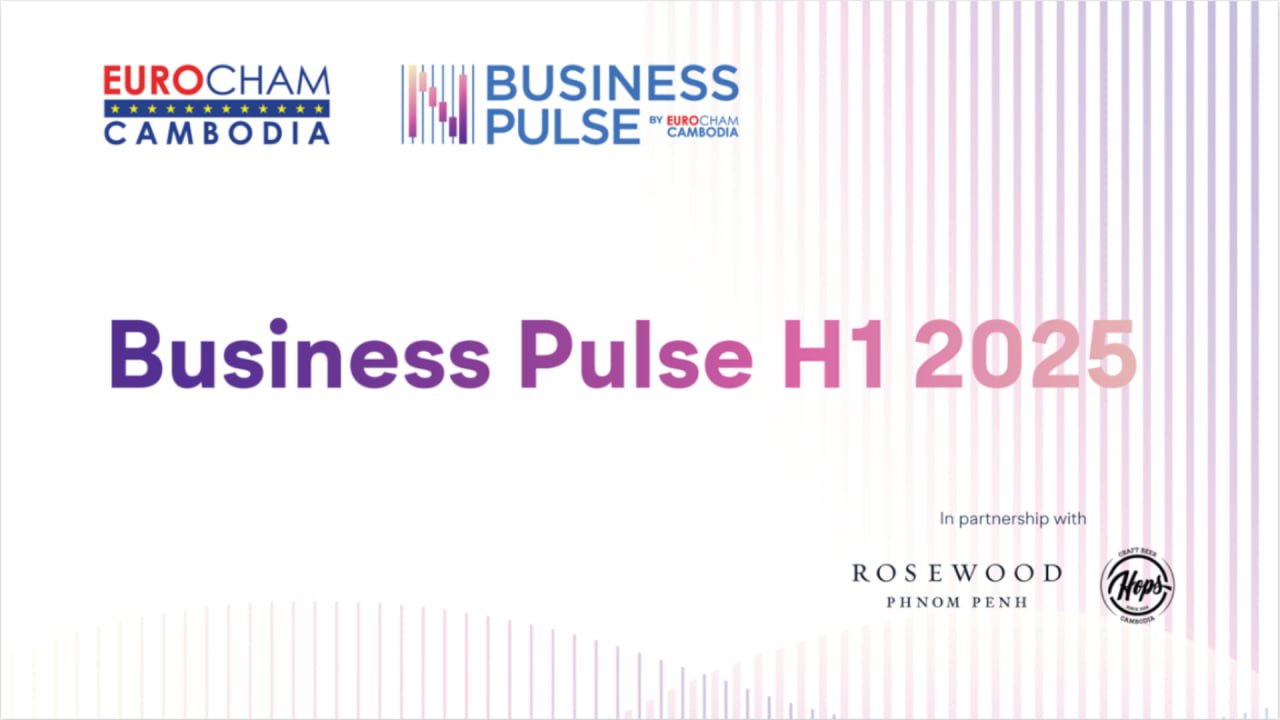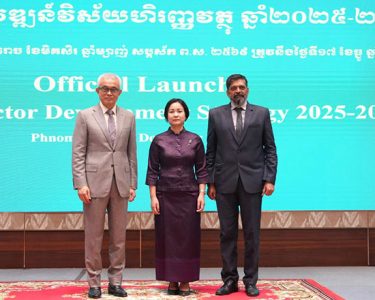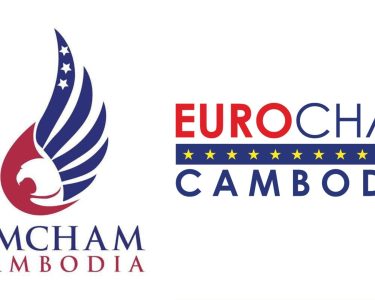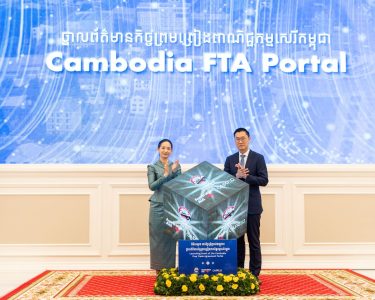Cambodia Investment Review
EuroCham Cambodia has released its Business Pulse H1 2025 Report, presenting a detailed snapshot of private-sector confidence amid regional uncertainty and global headwinds. The data-driven report outlines how border tensions, new trade tariffs, and shifting consumer sentiment have shaped business conditions across Cambodia’s leading industries, from financial services and agriculture to tourism and construction.
Sector Sentiment Shifts in a Challenging Half-Year
The latest survey of EuroCham members revealed that the first half of 2025 brought a tougher business environment overall. Real estate, construction, and service sectors reported declining revenues, while agriculture and tourism faced external shocks that disrupted supply chains and slowed momentum.
Two developments had the most immediate economic impact: the Thailand–Cambodia border dispute, which hindered logistics and agricultural exports for nearly four in ten businesses, and the introduction of U.S. tariffs, which prompted delays in foreign investment and increased costs for exporters.
Despite these setbacks, Cambodia’s reputation as a stable investment destination improved slightly in early 2025. However, the report notes that many respondents remain hesitant to recommend new entrants into the market, citing ongoing uncertainty and weaker credit demand.
Financial Services and Consumer Confidence Provide Stability
According to Nicolas Hollanders, CEO of BRED Bank Cambodia, the financial sector has shown both resilience and warning signs. Outstanding loans rose just 2.9% year-on-year to $61.8 billion by June 2025, signaling softer demand — particularly in real estate and construction.
Meanwhile, deposits climbed by 14.5% to $61.5 billion, indicating continued public confidence in the banking system. However, non-performing loans increased to around 8.3% from 7.4% at the end of 2024.
“Liquidity and capital positions remain solid, but rising credit risk and slowing demand are becoming more of a concern,” Hollanders said.
Tourism and Agriculture Lead Growth Momentum
Cambodia’s tourism and hospitality industry recorded encouraging growth, driven by international arrivals and domestic travel. According to Catherine Germier-Hamel, Chair of EuroCham’s Tourism & Hospitality Committee, Cambodia welcomed about 3.36 million foreign tourists in H1 2025 — a 6.2% increase year-on-year.
Angkor Archaeological Park alone received 567,673 visitors, generating $26.3 million in ticket sales. Hotel supply in Phnom Penh expanded by roughly 6%, and the upcoming Techo International Airport — set to open later this year — is expected to further boost arrivals.
The agriculture and food processing sectors also delivered strong results. EuroCham Agribusiness Committee Chair Oknha Sovithya Sothy noted that crop exports grew 27% year-on-year to 7.83 million tonnes, generating $2.87 billion in revenue. Cashew nuts led export growth with a 56% increase, while fertilizer and equipment imports rose sharply — a sign of continued investment in productivity.
“Food processing remains limited, but the government’s focus on value addition offers a major opportunity for future growth,” Sothy said.
Outlook: Companies Shift Toward Efficiency and Cost Control
Looking ahead, one-third of surveyed businesses plan to reduce operational costs in the second half of 2025. The most common measures include staff reductions (51%), marketing budget cuts (45%), and scaled-back training programs (26%). The U.S. dollar continues to dominate as Cambodia’s transaction currency, with declining use of the Khmer riel and euro.
EuroCham Executive Director Martin Brisson said the findings highlight both challenges and opportunities for the private sector.
“Access to reliable business information is essential for decision-making, yet firsthand data remains scarce in Cambodia. The Business Pulse offers critical insights into performance, confidence, and the evolving business environment,” he said.
The full Business Pulse H1 2025 Report, including detailed sectoral analysis, policy recommendations, and investment outlooks, is available for download on the EuroCham Cambodia website.





